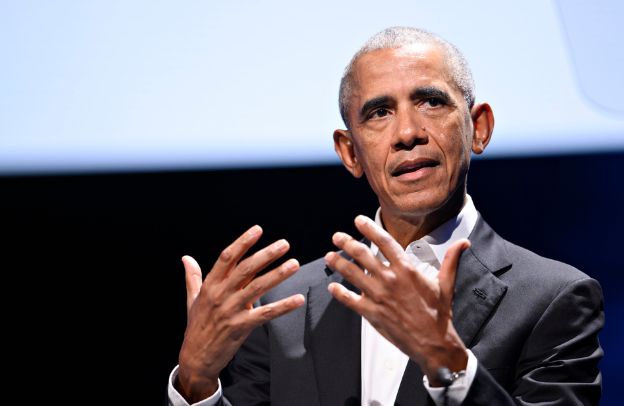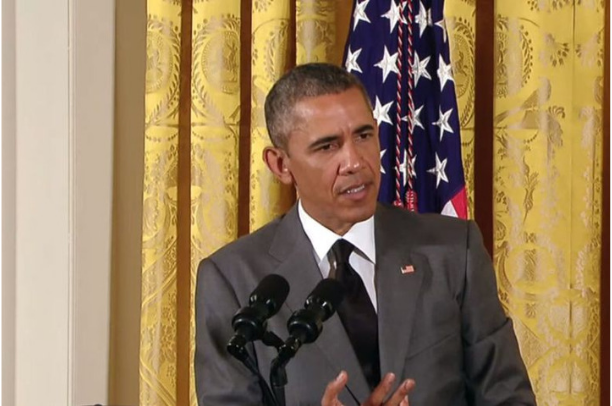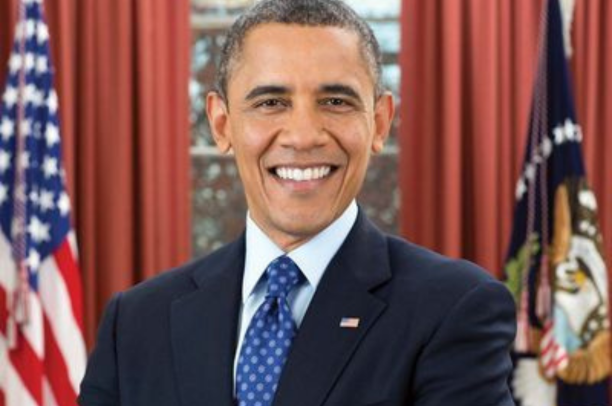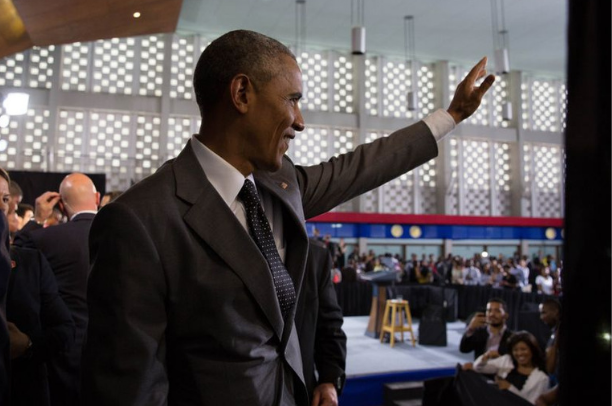Barack Obama’s Senate Floor Speech on the Patriot Act

While making the most out of every opportunity to strike a cord, Barack Obama addresses key points regarding the Patriot Act like the purpose for the Patriot Act in the first place, concerns about civil liberties, and the false choice between security and principles. He also made sure to highlight bi-partisan efforts to reauthorize the Patriot Act with a focus on accountability, issues with the conference report, and lack of right to challenge gag orders, among other things. This speech just like his Commencement Address at Knox College highlights his commitment to a balanced and thoughtful approach to governance, addressing complex issues with a focus on preserving the principles that define the United States. The speech was delivered 15 December 2005.
Want to learn more about storytelling? Start by downloading the first chapter of The Storytelling Mastery.
Thank you very much, Mr. President.
You know, four years ago, following the most devastating attack in our history, this Body passed the USA PATRIOT Act in order to give our Nation’s law enforcement the tools they needed to track down terrorists who plot and lurk within our own borders and all over the world; terrorists who, right now, are looking to exploit weaknesses in our laws and our security to carry out attacks that may be even deadlier than those that took place on September 11th.
We all agree that we need legislation to make it harder for suspected terrorists to go undetected in this country. And we all agree that we needed to make it harder for them to organize and strategize and get flight licenses and sneak across our borders. Americans everywhere wanted to do that.
But soon after the PATRIOT Act passed, a few years before I even arrived here in the Senate, I began hearing concerns from people of every background and political leaning that this law, the very purpose of which was to protect us, was also threatening to violate some of the rights and freedoms that we hold most dear; that it didn’t just provide law enforcement the powers it needed to keep us safe but powers that it didn’t need to invade our privacy without cause or suspicion.
Now, in Washington, this issue has tended to degenerate into the typical either/or debate: Either we protect our people from terror or we protect our most cherished principles. I would suggest, Mr. President, that this is a false choice. It asks too little of us and it assumes too little about America.
That’s why, as it’s come to time to reauthorize the USA PATRIOT Act, we’ve been working in a bipartisan way to do both — to show American people that we can track down terrorists without trampling on our civil liberties, to show the American people that the Federal Government will only issue warrants and execute searches because it needs to do so, not because it can do so.
What we have been trying to achieve under the leadership of a bipartisan group of Senators is some accountability in this process to get answers and see evidence where there is suspicion.
Several weeks ago, these efforts bore fruit. The Judiciary Committee and the U.S. — U.S. Senate managed to pass a piece of bipartisan legislation that, while I can’t say is perfect, was able to address some of the most serious problems in the existing law.
Unfortunately, that strong bipartisan legislation has been tossed aside in conference. Instead, we’ve been forced to consider a piece of rushed legislation that fails to address the concerns of Members of both parties as well as the American people.
This is legislation that puts our own Justice Department above the law. When national security letters are issued, they allow Federal agents to conduct any search on any American, no matter how extensive, how wide-ranging, without ever going before a judge to prove that the search is necessary. All that is needed is a signoff from a local FBI agent. That’s it.
Once a business or a person receives notification that they will be searched, they are prohibited from telling anyone about it and they’re even prohibited from challenging this automatic gag order in court. Even though judges have already found that similar restrictions violate the First Amendment, this conference report disregards the case law and the right to challenge the gag order.
If you do decide to consult an attorney for legal advice, hold on. You will have to tell the FBI that you’ve done so. Think about that: You want to talk to a lawyer about whether or not your actions are going to be causing you to get into trouble, you’ve got to tell the FBI that you’re consulting a lawyer. This is unheard of. There is no such requirement in any other area of the law. I see no reason why it’s justified here.
And if someone wants to know why their own Government has decided to go on a fishing expedition through every personal record or private document, through the library books that you read, the phone calls that you’ve made, the e-mails that you’ve sent, this legislation gives people no rights to appeal the need for such a search in a court of law. No judge will hear your plea; no jury will hear your case. This is just plain wrong. And there are Republican Senators as well as Democratic Senators that recognize that it’s plain wrong.
Giving law enforcement the tools they need to investigate suspicious activities is one thing and it’s the right thing; but doing it without any real oversight seriously jeopardizes the rights of all Americans and the ideals America stands for.
Now, supporters of this conference report have argued we should just hold our noses and support this legislation because it’s not going to get any better. That is not a good argument. We can do better. We’ve got time to do better. It doesn’t convince me that I should support this report.
I believe we owe it to the Nation, we owe it to those who fought for our civil liberties, we owe it to the future and our children to make sure that we craft the kind of legislation that would make us proud, not just legislation that we would settle for because we’re in a rush. We don’t have to settle for a PATRIOT Act that sacrifices our liberties or our safety. We can have one that secures both.
Now, there have been proposals on both sides of the aisle and in both Houses of Congress to extend the PATRIOT Act for three months so that we can reach an agreement on this bill that is well thought through. I support these efforts and will oppose cloture on what I consider to be this unacceptable conference report.
Mr. President, I thank you. I yield the floor.
Want to learn more about storytelling? Start by downloading the first chapter of The Storytelling Mastery.





